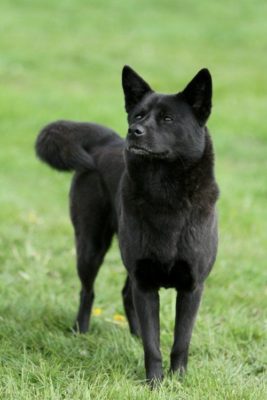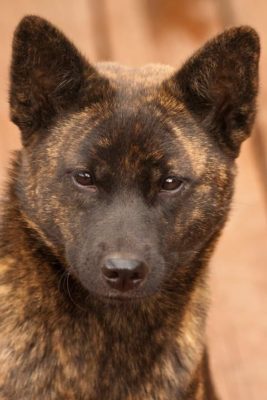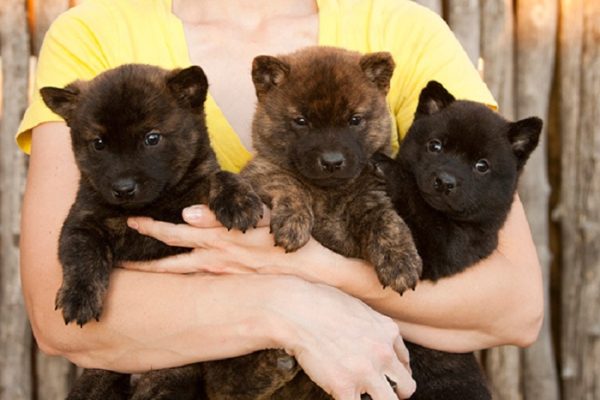Kai Ken
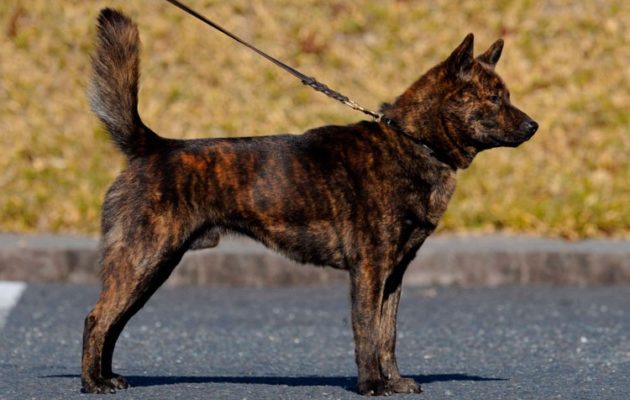
The Kai Ken is very hardy, does not depend on weather conditions, and calmly tolerates heat and cold. Possesses a rather tough character and stormy temperament. Likes independence and respect in the family. Great to get along with teenagers, but small children should not be trusted with her. Fearless, can kill a wild boar and even drive a deer.
Table of Contents
Breed Information
| Another Name | Kai, Tora Inu, Tiger Dog |
| Origin | Japan |
| Height | Males 46-56 cm Females 43-50 cm |
| Weight | 14-18 kg |
| Fur | Medium |
| Color | Black-tiger, gray-tiger, red with black mask |
| Lifespan | 14-16 years |
| FCI Classification | Spitz and primitive types |
| Group | Hunting dogs |
| Price | From $3000 |
Breed Photos
Origin History
Kai, kai-inu, kai-ken, tora, kai tora ken, kosh-tora, or just a tiger dog! That’s how many names this dog breed has. All thanks to its unusual spotted color and habitat. The homeland of pack-hunting dogs is considered the Kai region in Japan. The mountainous, hard-to-reach terrain and isolated area prevented Kai Ken’s chewing and allowed the breed to remain pure. Today, this breed is scarce; tiger dogs are bred only in Japan, Canada, and the United States, where they got during World War II with American soldiers. As early as 1934, the Kai received a national treasure status in Japan, but the FCI did not officially adopt the breed standard until 1982.
Appearance
The Kai’s exterior has remained unchanged since the breed’s inception, for which they are called aboriginal. The right body structure of medium size, strong legs, and developed musculature allowed them to hunt successfully in their usual mountainous terrain. The body is elongated, the head has a wide forehead and muzzle, and the eyes are dark brown. The triangular ears are planted higher than in other Japanese breeds. The back is broad, the chest is deep, the abdomen is taut, and the tail is thick and sickle-shaped. Coloration depends on the shade and color of black stripes on the body. A distinction is made between black-tiger, gray-tiger, red with a black mask.
Character
The Kai Ken is very hardy, does not depend on weather conditions, and calmly tolerates heat and cold. Possesses a rather tough character and stormy temperament. Likes independence and respect in the family. Great to get along with teenagers, but small children should not be trusted with her. Fearless, can kill a wild boar and even drive a deer. Despite its short stature, in case of a real threat to the owner, without hesitation, rushes to defend. They do not like tenderness but will gladly scratch behind the ear once or twice.
Care
Supervised jogging and exercise are needed every day. The Kai Ken is considered a working dog and must always be supervised or in an enclosure. Free walking is contraindicated for this breed because the dog’s hunting instinct can run away and roam for a long time.
The hair, though not long, is prone to tangles, and it is recommended to brush it once a week. Ten times a year is the maximum number of times when you need to wash the pet thoroughly. There is no need for regular claw trimming unless the dog was bought for hunting, then it will cut them off itself on rocky areas while running.
Training
Suitable for lovers of self-confidence in their pets. Don’t expect a master-servant relationship; it won’t work that way with the Kai Ken; all you can count on is an equal partnership between man and dog.
Training this proud dog requires special skills suitable for experienced dog handlers. One wrong move or action toward the Kai will destroy all previous efforts and wipe out the tiger dog’s trust in humans.
Common Diseases
The Kai Ken is considered a long-liver among different breeds. With proper nutrition and regular walks, the tiger dog is capable of living more than 15 years.
Veterinarians advise a comprehensive vaccine that will save against several diseases at once. The tiger dog breed very often suffers from diseases of the gastrointestinal tract, eyes, hips, hypothyroidism, and gastric ectasia. For a hunting dog, vaccination is necessary, as there is a high risk of contracting the disease from various animals while hunting.
Nutrition
With intensive training, food should be calorie-dense, essential for Kai Ken in winter, when there is very high energy expenditure. Remember to have a balanced diet. Rice, buckwheat, vegetables, and fruits make up 25% of the total diet, and the remaining 75% is protein food of animal origin. You should not feed sweets, flour products, semi-finished products, and canned foods. It is strictly forbidden to add spices to food, as it may severely damage the sense of smell, which is very important for hunting tiger dogs. Cynologists recommend feeding the adult Kai Ken closer to the evening; one nourishing meal will be enough.
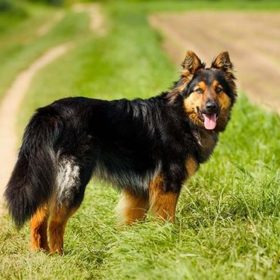 Bohemian Shepherd
Bohemian Shepherd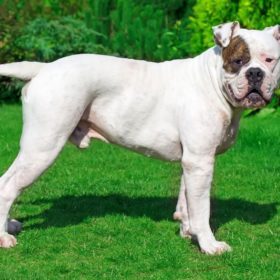 American Bulldog
American Bulldog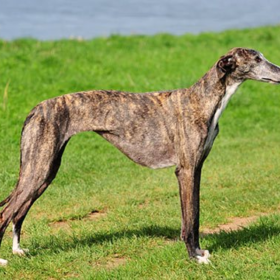 Galgo Español
Galgo Español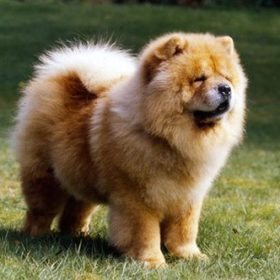 Chow Chow
Chow Chow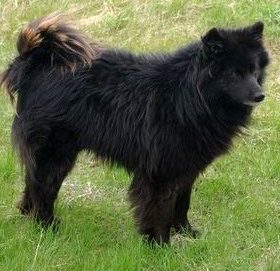 Nenets Herding Laika
Nenets Herding Laika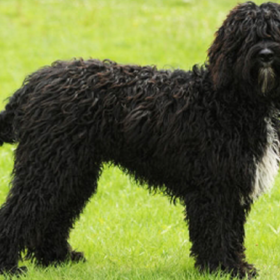 Barbet
Barbet